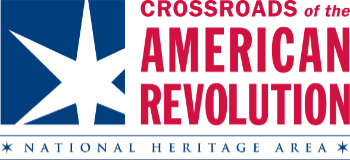Biography People
Andrew Hunter Full Biography
I was born in 1752 while my father was an officer in the British Army serving in America. My uncle, whom I was named after, was the Presbyterian minister in Greenwich, Cumberland County and I went to live with him because life would be more stable and I would have greater opportunities. I graduated from the College of New Jersey at Princeton, and having studied under my uncle I was licensed to preach in 1773. After my uncle’s death in 1775, I was the temporary pastor of the church in Greenwich. While living in Greenwich, I participated in what became known as the Greenwich Tea Party, when a group of young men on the evening of December 22, 1774 removed some secretly unloaded and stored tea from a house and burned it publicly as one of the protests against Parliament’s taxes. In 1775, I married Ann Riddle and we moved to Woodbury where I took over as Presbyterian minister.
When a British invasion of New York became imminent in June 1776, I was named chaplain for Colonel Van Cortland’s battalion in General Nathaniel Heard’s brigade of New Jersey State militia enlisted for five months to help defend New York. I kept a diary during that time and several days before the battle on Long Island I wrote that, “A smart skirmish happened between our Men and an advanced party of the enemy. One of our riflemen received a Musket ball in his Thigh which broke the bone. I was present at nursing the wound a little distance from the place of action – oh the excruciating Pain!” Several days later, “One of our men had his leg shattered with a 6 Pound Ball. I was present when Dr. Warren amputated the Limb – the man fearcely distorted his Face, and never gave a groan. The operation was performed in about 3 minutes after the Tornequits were fit – with very little loss of Blood.”
On August 27, the main battle took place and, “Early in the morning the Enemy in the woods attempted to surround our people in different Places which they in some Degree effected. A warm engagement at different Quarters ensued. But the enemy, being double in Number, our Men were obliged to give way. Many were killed, many wounded, some drowned, and others escaped by swimming.” Several days later we retreated from Long Island back to New York City from which our regiment was ordered to Mount Washington on September 9. “About 10 o’clock I marched with our Regt. from N. York towards Mount Washington and carried my Gun, Canteen and Ammunition, we arrived about 2 O’Clock P.M.” As we marched north the enemy kept up a cannonade all day and “as we came along the Road the Balls and Bombs were whizzing about us—we saw two large heaps of balls that had been picked up by our people wch (which). the Enemy had sent into the Camp. We are now got fairly into the spirit of a Soldier’s Life.” That night I lodged for the first time in a tent. We had not been able to use our tents before and slept in the open air. Things were quieter on the 26th and I spent the day reading The Crisis. I found the author’s sentiments to be “pretty just, but illy-drest, and rather plain.”
In 1777, I became a chaplain in the Continental army and in September 1777 was the chaplain for the Fourth New Jersey Continental Regiment. During the terrible winter at Valley Forge I was among those who suffered, but I was then excited by the news that France had joined in alliance with us. General Washington ordered the army’s brigades to assemble for religious services to give thanks for this event. The General attended the services of our New Jersey Brigade when I delivered the discourse. In 1779, my brigade was part of the army of General Sullivan when we marched into the country of the Iroquois to lay it waste.
After my discharge from the army I returned to serve as minister to both Blackwood and Woodbury. I founded the Woodbury Academy in 1791 and it soon became one of the most famous schools in New Jersey. In June 1792, my wife and I moved into a house we purchased in Woodbury and today our house is at 58 N. Broad St. and is the museum of the Gloucester County Historical Society. Ann died in 1793 and several years later I married Mary Stockton, daughter of Richard Stockton who signed the Declaration of Independence for New Jersey. For a while I taught at the college in Princeton and then in 1810 I was appointed chaplain to the United States Navy. I lived in Washington until my death in 1823.
FURTHER SOURCES
“Historic Woodbury Founded 1683”, Woodbury Daily Times, March 3, 1964, p?. Article on Rev. Andrew Hunter
Tait, Liz, transcriber. The Revolutionary War Diary of Chaplain Andrew Hunter, New Jersey Brigade, Continental Army online at http://www.revwar75.com/library/bob/HunterDiaries.htm. This website contains both the 1776 diary and 1779 diary. The original diary is at the Firestone Library of Princeton University. Portions of the 1776 diary are reprinted in Gerlach, Larry R., ed.New Jersey in the American Revolution, 1763-1783: A Documentary History. Trenton: New Jersey Historical Commission, 1975, pp329-332.
Cushing, Thomas and Charles E. Sheppard, History of the counties of Gloucester, Salem, and Cumberland New Jersey : with biographical sketches of their prominent citizens. Philadelphia: Everts & Peck, 1883. Reprinted in 1974 by the Gloucester County Historical Society, Woodbury, NJ, p686.
Greenwich Historic District –http://www.historicgreenwichnj.org/history-resources.html
